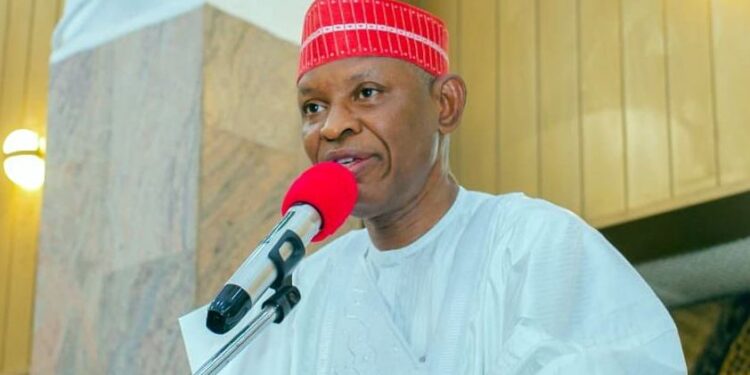Kano Govt Moves To Regulate Broadcast Content, Bans Live Political Programs

The government of Kano State has introduced strict media regulations aimed at reshaping the tone and nature of broadcast content within the state.
The announcement was made through a formal statement signed by Director of Special Duties at the Ministry of Information and Internal Affairs, Sani Abba Yola.
The new guidelines emerged following a strategic quarterly meeting convened by the Ministry, bringing together media executives and state officials.
During the session, the Commissioner for Information and Internal Affairs, Comrade Ibrahim Abdullahi Waiya, defended the government’s decision, saying the approach is intended to “safeguard Kano’s cultural and moral integrity.”
The meeting was described as a platform to “reinforce ethical journalism, promote mutual respect, and strengthen collaboration between the media and government,” with Waiya applauding broadcasters for recent efforts in reducing “unethical content” and curbing abusive language in public discourse.
He clarified that the government’s intention is not to suppress voices but to ensure that public communication aligns with the values and traditions of the people.
“The new guidelines are not designed to stifle free expression but to ensure responsible communication in line with the values of Kano State,” he said.
Nonetheless, several provisions within the newly released directives have raised eyebrows. Critics argue the measures may serve as tools for political suppression, particularly targeting dissent and critical commentary.
One of the more controversial provisions mandates all guests appearing on radio and television shows to sign a formal agreement promising not to make statements considered defamatory, abusive, or offensive to Kano’s cultural norms.
In addition, a complete ban has been placed on all live political broadcasts, and media hosts are now barred from posing questions or using gestures that might be perceived as tarnishing the state’s image.
The state government also revealed that it has initiated awareness campaigns aimed at educating political commentators, broadcasters, and religious leaders on what it refers to as “responsible communication.”
While the administration maintains that its goal is to preserve social cohesion and moral standards, critics view the move as a thinly veiled attempt at censorship, warning that it may erode the media’s watchdog role.





